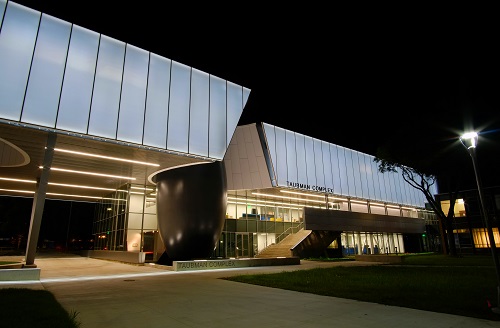The board of trustees at Lawrence Technological University in Southfield has approved the exploration of developing a fourth residence hall that would house 300 students. The hall, if built, would be located on the 107-acre campus.
With a current enrollment of 4,500 students, the university is near its recommended capacity of 5,000 students. President Virinder Moudgil says the 5,000-student threshold ensures the university can maintain a favorable student-teacher classroom ratio without overstretching resources.
Bruce Annett Jr., LTU’s vice president of marketing and public affairs, says the university has just started the process of evaluating the residence hall. “We have no firm plans yet, however — no architect, no contractor, or even where on campus it is going to be,” he says. “But it is part of our strategic plan to add more residential opportunities for students.”
The university’s residence halls include South Housing, which offers 131 apartment-style suites for 337 students just south of its campus; Reuss Hall, a five-pod style residence for up to 150 students; and Donley Hall at the north end of campus made up of 70 apartment-style suites for up to 210 students.
In September, the university dedicated the A. Alfred Taubman Engineering, Architecture, and Life Sciences Complex, a $16.9-million, 36,700-square-foot building that offers state-of-the-art laboratories, collaboration areas, and the Marburger STEM Center. The lab space is for robotics, biomechanics, embedded software, and more.
In related news… LTU and St. John Providence announced Thursday that the two institutions received state approval to establish a nursing education program. Set to launch next August, classroom instruction will be held at the university, while clinical and laboratory instruction will be conducted at six St. John Providence hospital locations in the region.
The new nursing program will admit an initial group of 32 students for the Fall 2017 academic semester, and 32 new students per year thereafter.
“Michigan and the nation as a whole are in the midst of a continuing shortage of qualified, well-trained nurses,” says Moudgil. “We aim to help solve that problem with a nursing education program that will take full advantage of our 85-year history as a technologically advanced university.”






